Getting started with the best of french cinema
Embark on a journey through the captivating world of French cinema with this curated list designed for newcomers. Discover a diverse range of styles and stories that define this rich film tradition.



French cinema boasts a history steeped in artistic innovation and cultural significance. From the groundbreaking techniques of the French New Wave, exemplified by masters like Jean-Luc Godard and François Truffaut, to contemporary films that explore complex social issues, the French film industry has consistently pushed boundaries.
Many French films are celebrated for their strong character development and their willingness to tackle thought-provoking themes. You'll find everything from whimsical comedies to intense dramas, often with a unique perspective on life and human relationships. Prepare to be introduced to a world of captivating storytelling and unforgettable performances.
14. Caché (2005)
Michael Haneke's Caché (Hidden) is a masterful and unsettling psychological thriller that explores themes of guilt, denial, and the buried secrets of the past. It centers on a bourgeois Parisian couple, Georges and Anne Laurent, whose comfortable lives are disrupted when they start receiving anonymous videotapes showing surveillance of their home.
The film is known for its static, often unnerving camera shots and ambiguous narrative, forcing the audience to become detectives themselves, piecing together clues and questioning everything they see. Daniel Auteuil and Juliette Binoche deliver nuanced performances as the increasingly paranoid couple. Haneke deliberately leaves many questions unanswered, creating a sense of unease that lingers long after the credits roll. It's a challenging but incredibly rewarding film that prompts deep reflection on history, responsibility, and the things we choose to ignore.

13. La Vie en Rose (2007)
Olivier Dahan's La Vie en Rose (La Môme) is a powerful and moving biographical film about the life of iconic French singer Edith Piaf. Starring Marion Cotillard in a transformative, Oscar-winning performance, the film charts Piaf's journey from a difficult childhood to international superstardom, chronicling her triumphs and tragedies.
Cotillard's portrayal of Piaf is nothing short of extraordinary, capturing the singer's raw talent, fiery spirit, and deep vulnerability. She completely embodies the role, earning widespread critical acclaim and the Academy Award for Best Actress – the first time an actress won for a role entirely in French. The film features many of Piaf's most famous songs, performed with incredible conviction. It's a compelling look at the turbulent life of one of France's most beloved cultural figures.
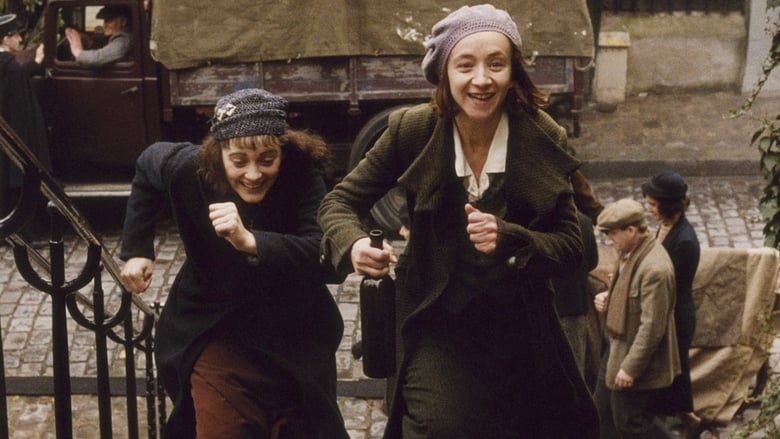
12. Delicatessen (1991)
Jean-Pierre Jeunet and Marc Caro's Delicatessen is a darkly comedic and visually inventive film set in a post-apocalyptic apartment building above a butcher shop. In this world, food is scarce, and the butcher has a disturbing way of acquiring meat for his tenants.
The film is a feast for the eyes, filled with eccentric characters, Rube Goldberg-esque contraptions, and a unique, slightly surreal aesthetic that feels like a twisted fairytale. Jeunet and Caro's background in comics and animation is evident in the film's playful yet macabre style. The sound design is also incredibly creative, highlighting the creaks, groans, and strange noises of the building. It's a quirky, funny, and sometimes unsettling film that showcases a distinctive strain of French cinematic imagination.
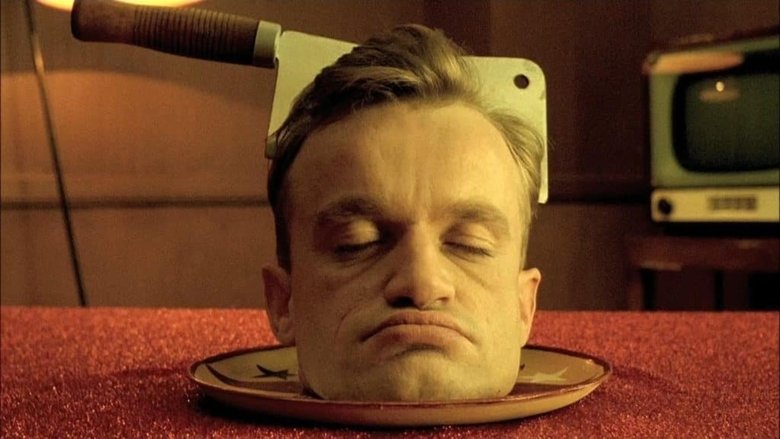
11. The Umbrellas of Cherbourg (1964)
Jacques Demy's The Umbrellas of Cherbourg (Les Parapluies de Cherbourg) is a truly unique and enchanting film – a musical where all the dialogue is sung. Starring a young Catherine Deneuve, it tells the story of a young woman who falls in love with a gas station attendant just before he is drafted into the Algerian War.
The film is a visual feast, shot in bright, candy-colored hues that make the everyday setting feel like a fairytale. Michel Legrand's beautiful, melancholic score is central to the film's identity; the melodies are instantly recognizable and emotionally resonant. Demy's vision was to elevate everyday life to the level of opera or musical. It's a bittersweet and romantic story about first love, separation, and the choices we make, presented in a completely unconventional and utterly captivating way. A truly special cinematic experience.
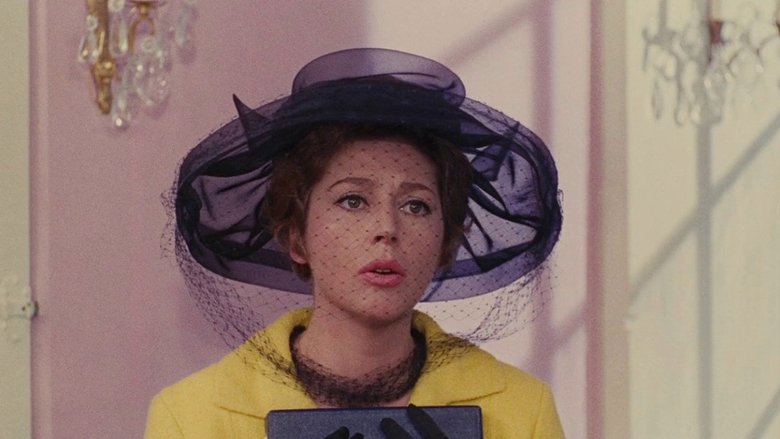
10. The Diving Bell and the Butterfly (2007)
Julian Schnabel's The Diving Bell and the Butterfly (Le Scaphandre et le Papillon) is an extraordinary and moving film based on the memoir of Jean-Dominique Bauby, the editor of Elle magazine who suffered a massive stroke that left him almost completely paralyzed, with only the use of his left eye.
The film brilliantly visualizes Bauby's internal world and perspective, using subjective camera work to show his limited view from his hospital bed. It chronicles how he wrote his entire book by blinking his left eye to select letters as a transcriber recited the alphabet. Mathieu Amalric gives a remarkable performance as Bauby, primarily through voiceover and facial expressions. It's a film about resilience, imagination, and the power of the human spirit to transcend physical limitations. The cinematography is stunning, creating a dreamlike quality that contrasts with the harsh reality.

9. Blue Is the Warmest Color (2013)
Blue Is the Warmest Color (La Vie d'Adèle) is a powerful and intimate coming-of-age story directed by Abdellatif Kechiche. It follows Adèle, a young woman who discovers her sexuality and finds first love with an older art student named Emma, distinguished by her blue hair.
The film is notable for its intense focus on the emotional and physical journey of its protagonist, brought to life by Léa Seydoux and Adèle Exarchopoulos in raw, committed performances. The film won the Palme d'Or at Cannes, with the jury making the unprecedented decision to award the prize not only to the director but also to the two lead actresses for their extraordinary work. While the film generated discussion for its explicit content, its core is a deeply felt exploration of love, desire, and self-discovery.
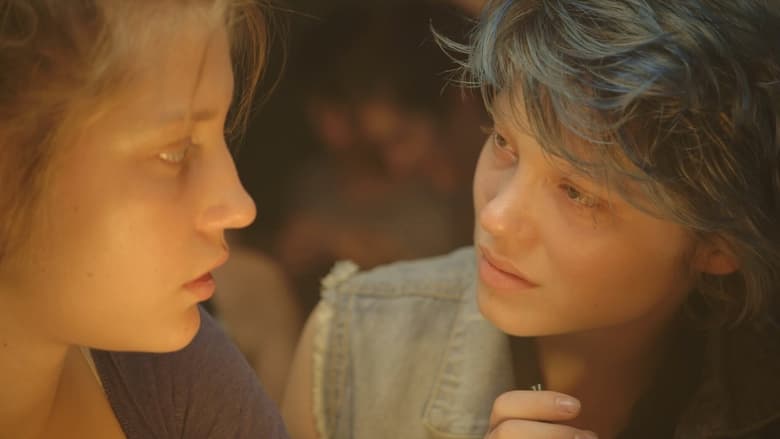
8. The Class (2008)
Laurent Cantet's The Class (Entre les murs) is a remarkably authentic and insightful drama that takes place entirely within the confines of a single classroom in a Parisian middle school. Based on the novel by François Bégaudeau, who also stars as the teacher, the film offers a raw look at the challenges of teaching and learning in a diverse, urban environment.
What makes this film so special is its documentary-like realism. Much of the dialogue was improvised by the non-professional actors, who were actual students from the school where it was filmed. Cantet spent a year working with the students before shooting began. The film captures the often-tense but sometimes humorous interactions between the passionate teacher and his often-challenging students. It won the Palme d'Or at the Cannes Film Festival, highlighting its powerful portrayal of contemporary French society and its educational system.
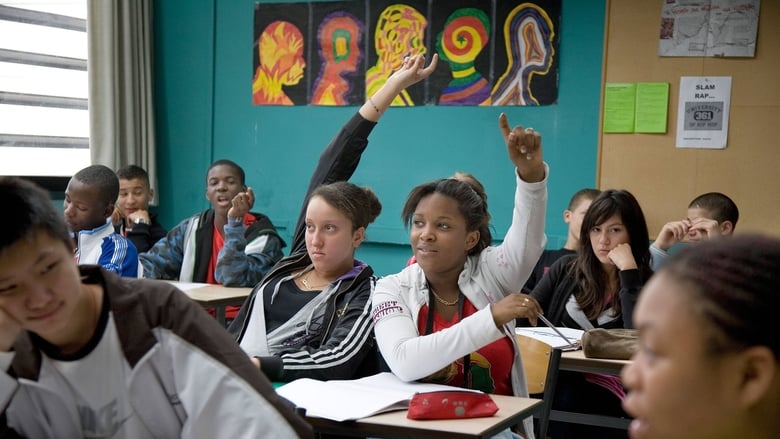
7. A Prophet (2009)
Jacques Audiard's A Prophet (Un prophète) is a gripping and gritty crime drama set within the confines of a French prison. It follows Malik, a young, uneducated Arab man who is sentenced to six years and quickly learns the brutal rules of survival and power dynamics inside the walls.
Tahar Rahim gives an incredible, transformative performance as Malik, evolving from a timid newcomer to a cunning figure navigating the complex relationships between Corsican and Muslim gangs. The film is incredibly realistic, depicting the harsh realities of prison life without sensationalism. Audiard spent time researching in prisons to capture the authenticity. It's a tense, intelligent thriller that explores themes of identity, loyalty, and the corrupting nature of power. It won the Grand Prix at the Cannes Film Festival and was nominated for an Academy Award for Best Foreign Language Film.

6. The Artist (2011)
The Artist is a unique and charming film that pays homage to the silent era of Hollywood, but with a distinctly French touch. Directed by Michel Hazanavicius, it tells the story of a silent film star whose career is threatened by the arrival of sound and the rise of a young actress.
This film was a massive international success, winning the Academy Award for Best Picture – the first non-English language film to do so since Parasite (though The Artist is mostly silent). Jean Dujardin is fantastic as George Valentin, capturing the larger-than-life persona of a silent film idol, and Bérénice Bejo is radiant as Peppy Miller. It's a joyous, inventive film that uses the language of silent cinema to tell a compelling story about change, fame, and finding your place in a new world. A truly original piece that celebrates film history.
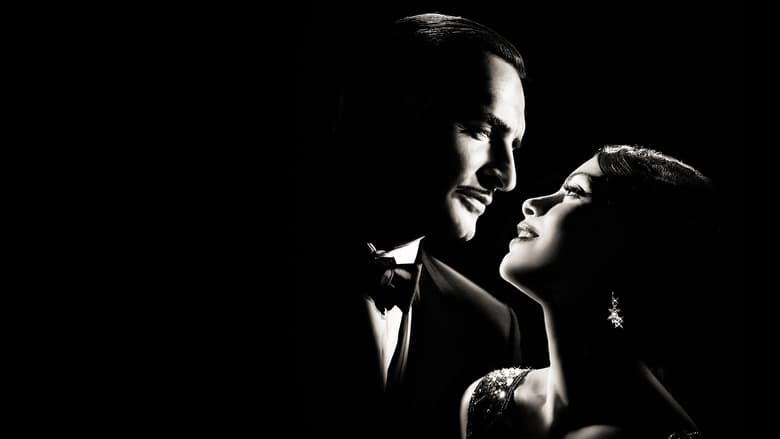
5. La Haine (1995)
Mathieu Kassovitz's La Haine (Hate) is a powerful and unflinching look at the lives of three young men in the housing projects (banlieues) outside Paris over a single, tension-filled day. Shot in stark black and white, the film captures the raw frustration, anger, and sense of marginalization felt by its characters.
The film is renowned for its stylistic energy, including a tracking shot that seems to float over the city and its housing projects. It premiered just weeks after real-life riots occurred in similar French suburbs, making its social commentary incredibly timely and impactful. Vincent Cassel delivers a breakout performance as Vinz, one of the central trio. La Haine isn't just a film; it's a cultural document that sparked significant discussion in France about social inequality and police brutality. It's intense, thought-provoking, and visually striking.

4. The 400 Blows (1959)
The 400 Blows (Les Quatre Cents Coups) is a deeply personal and profoundly moving film by François Truffaut, considered a cornerstone of the French New Wave. It follows the story of Antoine Doinel, a young boy in Paris struggling with neglectful parents and a rigid school system.
This film was semi-autobiographical for Truffaut, drawing heavily on his own difficult childhood. Jean-Pierre Léaud's performance as Antoine is incredibly naturalistic and heartbreaking; he would go on to portray the character in several subsequent films over decades, making Antoine Doinel one of cinema's most enduring figures. The famous final shot, a freeze-frame of Antoine's face at the beach, is one of the most iconic endings in film history, perfectly capturing a moment of uncertainty and freedom. It's a poignant look at childhood rebellion and the longing for escape.
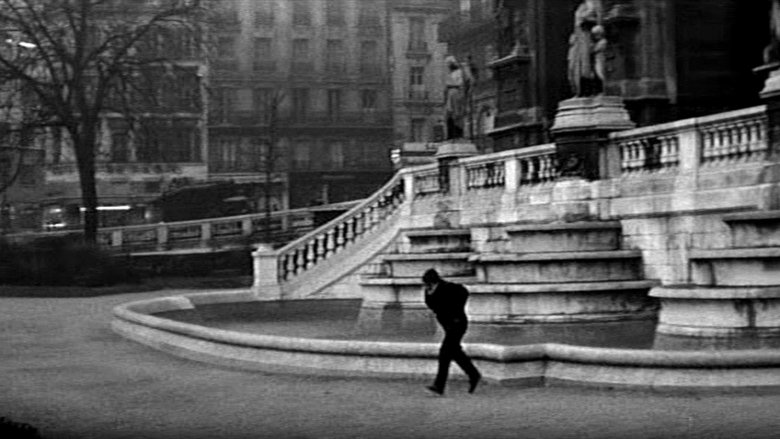
3. Breathless (1960)
Step back in time to the birth of the French New Wave with Jean-Luc Godard's revolutionary Breathless. This film is a landmark in cinema history, bursting with rebellious energy and breaking all the rules that came before it. Starring Jean-Paul Belmondo as a small-time criminal on the run and Jean Seberg as his American girlfriend in Paris.
Godard famously used jump cuts, hand-held cameras, and shot on location with minimal equipment, giving the film a raw, spontaneous feel that was unheard of at the time. He even wrote scenes the morning of shooting! The improvisational style and cool, detached performances perfectly captured the zeitgeist of the late 1950s. It's a stylish, cool, and endlessly influential film that redefined cinematic language and is essential viewing for anyone interested in the evolution of film.
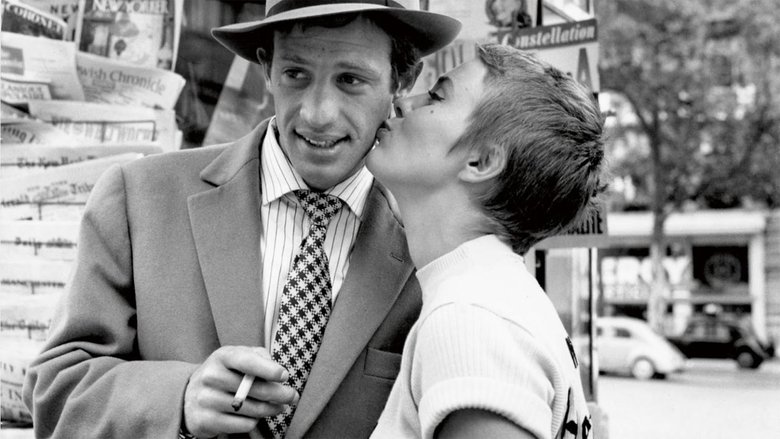
2. The Intouchables (2011)
The Intouchables is a heartwarming and incredibly funny film based on a true story that took France by storm. It tells the unlikely friendship between a wealthy quadriplegic aristocrat, Philippe, and Driss, his charismatic ex-convict caregiver from the projects.
François Cluzet and Omar Sy have electrifying chemistry, bringing so much life and authenticity to their roles. Omar Sy, in particular, won the César Award for Best Actor for his performance, a rare feat for a Black actor in France. The film masterfully balances humor and pathos, tackling themes of class, prejudice, and finding joy in unexpected places. It's a testament to the power of human connection and finding laughter even in the face of adversity. You'll find yourself laughing out loud one moment and deeply moved the next. It's not just a French phenomenon; it resonated with audiences worldwide.
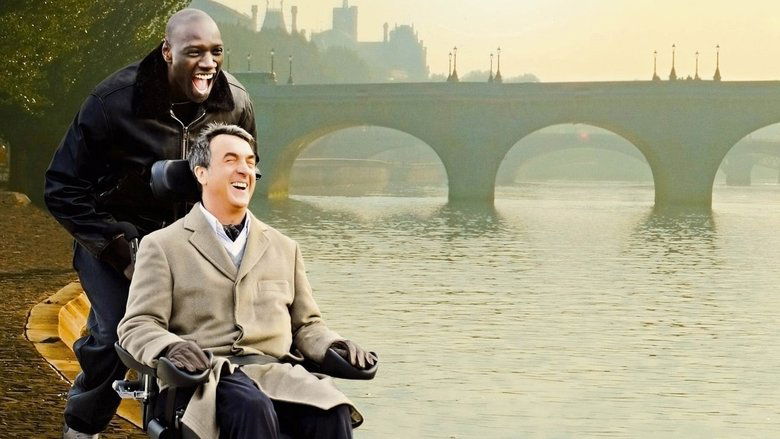
1. Amélie (2001)
Welcome to the whimsical world of Montmartre! Amélie is an absolute delight, a film that feels like a warm hug and a mischievous wink all at once. Audrey Tautou is utterly captivating as Amélie Poulain, a waitress with a playful imagination who decides to secretly orchestrate the lives of those around her.
The cinematography by Bruno Delbonnel is breathtaking, painting Paris in lush, saturated greens and reds that make the city itself feel like a character. Director Jean-Pierre Jeunet creates a truly unique reality, filled with quirky characters and unexpected moments of beauty and connection. Did you know the film was shot on location in many of the real places Amélie visits? You can actually visit the Café des 2 Moulins where she works! It's a modern French classic that perfectly captures a sense of childlike wonder and the simple joys of everyday life. A perfect introduction to contemporary French cinema's charm and creativity.

